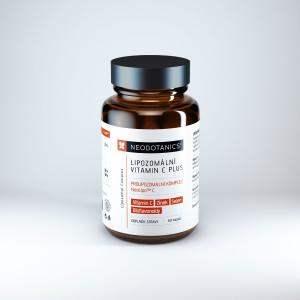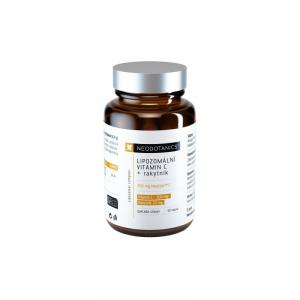
Lemon and Osteoporosis: A Connection That Can Protect Your Bones

Lemon and Healthy Bones - How a Common Fruit Can Help Prevent Osteoporosis
At first glance, it may seem that there is no direct connection between lemons and bone disease. Lemons are known more as a vitamin bomb during colds or as a base for refreshing summer drinks. However, in recent years, more and more experts and the general public are tackling the question: can lemon support bone health and help prevent osteoporosis?
Osteoporosis is one of the lifestyle diseases that affect millions of people worldwide. In the Czech Republic alone, approximately 800,000 people suffer from it, with a much higher risk in postmenopausal women. This disease, also called the "silent thief of bones," is often painless and only becomes apparent when a serious fracture occurs. Prevention is therefore crucial – and that is where the role of lemon can surprise.
Lemon - A Citrus Miracle Full of Nutrients
Lemon contains a number of beneficial substances for the body, dominated by vitamin C, citric acid, flavonoids, and other antioxidants. We all know that vitamin C helps the immune system, but its impact on bone health is often underestimated.
Try our natural products
In fact, vitamin C contributes to the synthesis of collagen, which is an important component of bone mass. Without sufficient collagen, bones lose their elasticity and become brittle. Research shows that people with higher intake of vitamin C have a lower probability of developing osteoporosis, mainly due to protection against oxidative stress, which can weaken bone cells.
Moreover, citric acid can improve calcium absorption – a mineral that is essential for healthy bones. And calcium deficiency is one of the main risk factors for osteoporosis. A study published in the Journal of Bone and Mineral Research shows that citric acid helps keep calcium more available in the body longer, thus increasing its effectiveness.
Acidity of Lemon vs. Acid-Base Balance
You might wonder: "How can something as acidic as lemon help bones when acidic environments tend to deplete calcium?" This is where the power of human physiology and one of the common myths come into play.
Although lemons have an acidic taste, they are alkalizing in the body. After metabolism, they do not leave behind an acidic residue but rather help adjust the body's pH towards alkalinity. A balanced acid-base equilibrium is important for bone health because too acidic an environment forces the body to release calcium from the bones to neutralize the excess acidity. Regular consumption of lemon water can thus be a simple tool to maintain body balance and protect bone tissues.
A Real Example - How a Small Change Can Make a Big Difference
Mrs. Jana, a sixty-year-old teacher from Ostrava, was diagnosed with osteopenia – the early stage of osteoporosis a few years ago. Her doctor recommended she adjust her diet and include supplements with calcium and vitamin D. However, Jana also started drinking a glass of lukewarm water with freshly squeezed lemon every day. "I didn't expect miracles, but I wanted to give my body something natural," she says.
After two years of regular check-ups, her results showed an improvement in bone density. Of course, it wasn't just the lemon, but as a supplement to the overall lifestyle change, lemon played an important role. Additionally, Jana noted better digestion and more energy.
Other Benefits of Lemon for Bone Health
Besides vitamin C and citric acid, lemon also contains small amounts of calcium, potassium, and magnesium – minerals that contribute to maintaining bone structure and muscle function. Magnesium, for example, helps regulate the balance of calcium and vitamin D in the body. Potassium has the ability to reduce calcium loss through urine, thus indirectly supporting bone density.
Flavonoids, such as hesperidin and eriocitrin, have antioxidant and anti-inflammatory properties, which can help reduce chronic inflammation – another factor that weakens bones over time.
How to Incorporate Lemon into Your Daily Routine?
Becoming a "lemon fan" doesn't mean drinking liters of lemon juice daily. Even small changes can have a significant effect:
- Start the day with a glass of lukewarm water with lemon
- Add lemon juice to salad dressings or soups
- Season roasted vegetables with fresh lemon and herbs
- Replace sugary drinks with lemon water with mint or ginger
When using lemon, it is also advisable to consider dental enamel – the acid can weaken its surface. Therefore, it is good to drink lemon water with a straw and rinse your mouth with plain water afterward.
Osteoporosis - Not Just Age, but Also Lifestyle
In addition to genetic predispositions, lifestyle habits play a major role in osteoporosis. Lack of exercise, smoking, excessive alcohol consumption, and even a poor diet low in calcium and vitamin D – all increase the risk of developing osteoporosis. Therefore, it is advisable to think about bone health in the long term, not just when problems arise.
"Prevention is cheaper than treatment," says MUDr. Eva Králová, a rheumatology specialist. "Keeping bones strong requires a combination of a healthy diet, exercise, and supplements if needed. And natural sources like lemon can be a great supplement."
Lemon as Part of Comprehensive Care
Although lemon alone will not cure osteoporosis, it can be part of an overall strategy to keep bones strong and healthy. Its effects will be appreciated not only by those who already have bone problems but also by those who want to prevent the disease.
In combination with a balanced diet, exercise (especially strength training and bodyweight exercises), and sufficient sun exposure, regular consumption of lemon can represent a simple and inexpensive way to contribute to your body's health.
And finally – lemon doesn't just have to be a means to support bones. It is also a symbol of refreshment, purity, and natural balance. And balance – in diet, exercise, and approach to the body – is the best recipe against osteoporosis.







